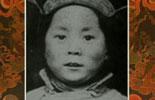Official Website
More than a decade after the fall of the former Soviet Union and Eastern European communist regimes, the international communist movement has been spurned worldwide. The demise of the Chinese Communist Party is only a matter of time.
ChinaDocs Warning: Please be aware that while this is an interesting documentary, it is made by, and therefore biased towards, the Falun Gong movement. Its neutrality is questionable.
Part 1: On What the Communist Party Is ?
Watch Online [ Hi ]
Download [ Hi ]
Part 2: On the Beginnings of the Chinese Communist Party
Watch Online [ Hi ]
Download [ Hi ]
Part 3: On the Tyranny of the Chinese Communist Party
Watch Online [ Hi ]
Download [ Hi ]
Part 4: On How the Communist Party Is an Anti-Universe Force
Watch Online [ Hi ]
Download [ Hi ]
Part 5: On the Collusion of Jiang Zemin with the CCP to Persecute Falun Gong
Watch Online [ Hi ]
Download [ Hi ]
Part 6: On How the Chinese Communist Party Destroyed Traditional Culture
Watch Online [ Hi ]
Download [ Hi ]
Part 7: On the Chinese Communist Party’s History of Killing
Watch Online [ Hi ]
Download [ Hi ]
Part 8: On How the Chinese Communist Party Is an Evil Cult
Watch Online [ Hi ]
Download [ Hi ]
Part 9: On the Unscrupulous Nature of the Chinese Communist Party
Watch Online [ Hi ]
Download [ Hi ]
 China is pulling out all stops as its capital takes to the world stage as host of the 2008 Olympic games. Since winning the bid seven years ago, Beijing has undergone a construction boom, making this Olympics the world's most expensive games ever, at a cost of $43 billion. This week on 101 East we ask, what does hosting the 2008 Olympics mean for China and its people?
China is pulling out all stops as its capital takes to the world stage as host of the 2008 Olympic games. Since winning the bid seven years ago, Beijing has undergone a construction boom, making this Olympics the world's most expensive games ever, at a cost of $43 billion. This week on 101 East we ask, what does hosting the 2008 Olympics mean for China and its people?



































